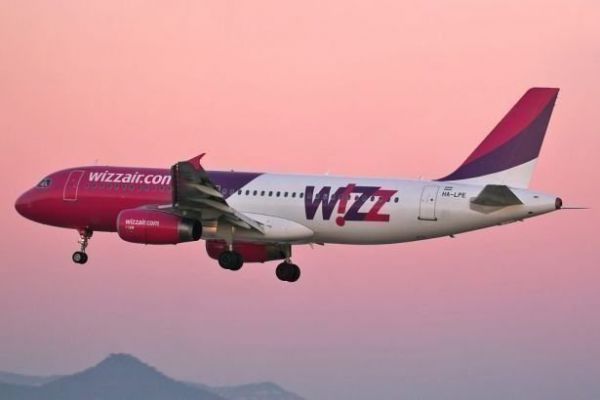Danish pension fund AkademikerPension has said that it is selling its stake in budget airline Wizz Air WIZZ.L over alleged "human and labour rights abuses" towards its workers.
Details
The $23 billion fund was one of 14 investors that called on Wizz in December to allow employees to form and join trade unions, saying their research suggested it was discouraging the practice in breach of staff rights.
AkademikerPension said this month that, after meeting management, it saw no sign the airline's practices would change, and so it had begun to divest its holding, worth more than $3 million. The market value of London-listed Wizz Air is around $5.8 billion.
The fund said that it had sold the shares it directly held in Wizz Air on 1 February, and had given its external fund managers until 8 February to do the same.
"After engaging with the company's management, we are in no way reassured that they will initiate the changes we have requested with regard to human and labour rights issues," said AkademikerPension chief executive Jens Munch Holst.
Responding to the fund's criticism of labour rights at the airline, a spokesperson for Wizz Air said that sustainability is a core value for the company, citing its top ranking among European airlines according to such criteria from data provider Sustainalytics.
"Wizz Air takes the engagement with its employees very seriously and we are confident that our structures and processes that have been in place to support open and transparent engagement are working extremely well, including our People Council, which provides a forum for employees to discuss important issues," the airline said in a statement.
As airlines continue to recover from the impact of the COVID-19 pandemic, Wizz Air noted its plan to hire more than 1,000 staff in the coming months and said that it has restored the pay of cabin crew and staff to pre-pandemic levels.
The move by AkademikerPension followed an investigation in which it found multiple instances where the company had refused to recognise the rights of staff to form a trade union.
In their December letter, the 14 investors and potential investors, which also included Britain's Ardevora Asset Management, quoted an interview with chief executive Jozsef Varadi in which he said that the company kept out unions as they were "killing the business".
Wizz Air Warns Of More Losses Before Recovery Takes Off
The above news followed news that Wizz Air WIZZ.L has warned that its fourth-quarter loss will likely top the €213.6 million third-quarter hit reported last month, before an expected recovery takes off fuelled by demand from Britain.
The Hungary-based carrier said that the emergence of the Omicron COVID-19 variant had hit sales in the latter part of its fiscal third quarter, and it expected to be impacted by ongoing travel uncertainty in January, February and part of March.
European airlines have been on a rollercoaster ride over the last year as governments dropped, and then sometimes reimposed, restrictions that increased both the cost and hassle of travel in a bid to contain waves of the pandemic.
CEO Jozsef Varadi told Reuters that Wizz Air had cut costs and acquired new landing slots, meaning it was in a stronger position to compete with the likes of Ryanair RYA.I and easyJet EZJ.L once the long-expected recovery comes.
He said that the airline had seen demand jump in Britain after the government announced an easing to restrictions last month. As a group it expects to operate 50% more capacity in August and September than the pre-pandemic 2019 summer.
"We are expecting a very strong recovery path of demand in the next few months," he said.
Ryanair said last month its confidence levels had undergone a "sea change" in recent weeks, as the perceived threat from Omicron eases and public attitudes to travel improve.
Varadi noted, however, that input costs were rising, with fuel, wages and regulatory changes all adding pressure, meaning that fare prices would need to go up in the short term.
While Ryanair said that it expected fares to rise due to lower available capacity, after airlines failed or shrank, Varadi said he expected there to be overcapacity in the next three to six months as rivals return to the market.
He said that the question for 2022 would be which airline had the most efficient cost base to offer competitive prices while juggling higher input costs. Wizz Air had liquidity of 1.4 billion euros at the end of December.
Barclays said that the update was in line with expectations but noted that solid passenger numbers came with weak pricing.
News by Reuters, edited by Hospitality Ireland. Click subscribe to sign up for the Hospitality Ireland print edition.









